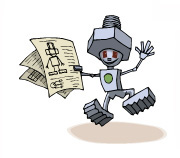


July 30 - August 3
I looked at the results of running all those tests. It seemed that nothing I've done improved the predictions by much. Since this was the last week, I turned my attention to refactoring and documenting the code.
Refactoring took longer than I thought it would. It sounds easy, but it's really time-consuming because I had to make sure that after everything I changed, the code was still working properly. One important change I made was to make it easier to use different strategies for current and future component prices predictions. Another thing I did was to split the enormous class that handled gathering all the features into a separate package of feature managers, one for each kind of feature (customer demand, supplier capacity, component prices, etc.). Finally, I made some minor but persistent changes. For example, I realized that one kind of object I kept using in my code was a (features, value) pair, so I made that into a class.
After I had refactored the code to my satisfaction (at one point, I realized that there was no such thing--one can always keep refactoring code) and written all the necessary documentation, I started to write the final report on my work. I was a bit daunted by my task at first and reluctant to start, because not only had I never done anything serious in LaTeX and was not really familiar with it, but I also had never written a technical paper. I started reading through The Not So Short Introduction to LaTeX2e. After I had a basic grasp of LaTeX and could start writing my paper, I tried to imitate the styles of other technical papers on the TAC SCM. I had to be careful not to plagiarize though, because like in these papers, I had to first give an overview of TAC SCM.
I'm not done with the paper yet, and I won't be leaving Providence until August 20th, so I'll be working on the paper and studying for the GRE in the meantime. This has been an interesting experience. Though my research wasn't very fruitful, I think I have learned a lot. I've learned more machine learning techniques, more technical skills, and the frustrations and process of research. I've met some great people as well, and learned a lot from conversations with them. Finally, I'm very grateful to have met Amy through the DMP. I'm much more comfortable working with her than I think I would have been working with a male professor.
 |
 |